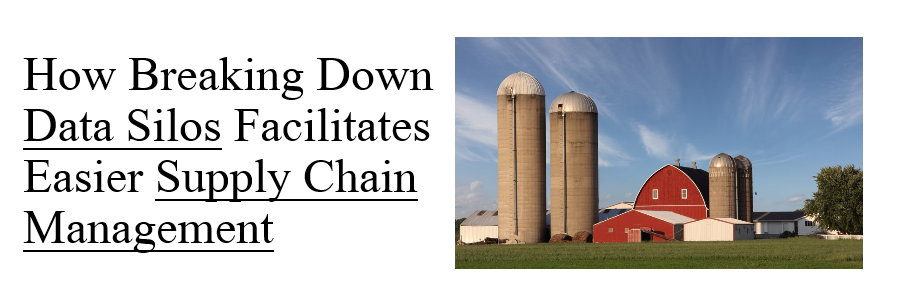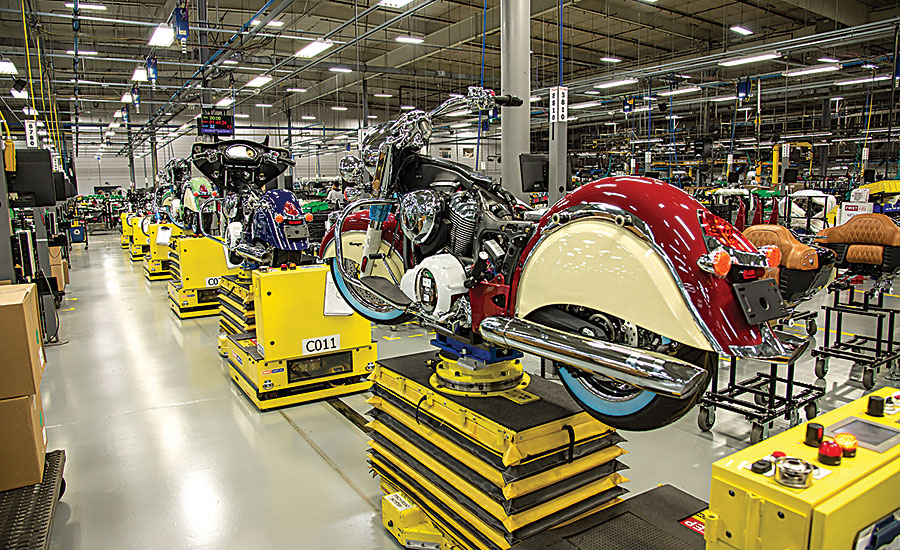How Breaking Down Data Silos Facilitates Easier Supply Chain Management
by Black Ink Team

Manufacturers today source the materials that they use while making their products from many different places all over the world. Globalization has enabled smaller players, geo-politically speaking, to compete at a top level in supplying raw materials. As a result, supply chains have become vastly more complex and the need to develop systems and processes to manage them has risen steeply. One obstacle that, unfortunately, remains in the way of having safe, reliable, and productive supply chains for many organizations is data silos.
When information that could be used for another function is housed somewhere where the person who needs it can’t access it, then from the point-of-view of that person it is in a silo. A lot of the time, the reason for a silo existing is that the other applications for that data have not yet been acknowledged by the business as a whole. It simply has not occurred to the manager that is responsible for managing the data, or whomever is above them, that it could be used for another purpose, even though nearly every store of information an organization has can be ‘recycled’ – used in a valuable way that is alternate to its original purpose.

For instance, product registration data at first glance seems only to be for documenting serial numbers for liability purposes, along with some customer information. But, product registrations can be useful to marketing teams, who can use them to do analysis on customer experience, preferences, and more. To give another example, in addition to granting product history information maintenance records can also be used to identify problems with the product that only emerge from on-the-ground usage, which can later be addressed during new product development.
Another reason for data silos existing is office politics. It is a fact of life that when people are given power they sometimes abuse it. An example of this in a manufacturer’s supply chain would be some unprofessional department head insisting on having data stored in an exceedingly inconvenient format, just so they can feel powerful when people conform to their rule. To fight this, a company’s entire culture must embrace a certain set of rules and best practices when it comes to data management. That is to say, there should be an organization-wide code of conduct when it comes to data sharing, in order to stop this from happening.

Data silos can negatively affect supply chains in many ways. Say production of a new product starts, and its requirements for raw materials fail to get sent to warehouses and distribution centers along the chain – that would mean that those warehouses and distribution centers will have to make a guess as to how much space needs to be made for those raw materials. Or, say the design team fails to disseminate the assembly instructions for the product or parts of the product – this would slow down production of the product right at the beginning of its life cycle, meaning a competitor might take the upper hand.
Another possibility is that some aspect of a supply chain might be unethical, and news about it may reach the stakeholders and/or the general public before those at the company who can do something about it. According to an article by Supply Chain Management Review, “consumers are now demanding to know that the products they buy are made in socially, ethically and environmentally conscientious ways.” They go on to say that, thanks to social media, news about unethical supply chains spreads rapidly. Without documented histories for every crate, barrel, etc. of raw materials you consume, you may be unknowingly partnering with criminal entities, which may ruin your reputation later on. Companies should keep a vigilant eye on their entire supply chain, and eliminating data silos helps with that.
